Calendar
The Holy Archangel Michael and all the Bodiless Powers of Heaven
20. November 2017 - 14:59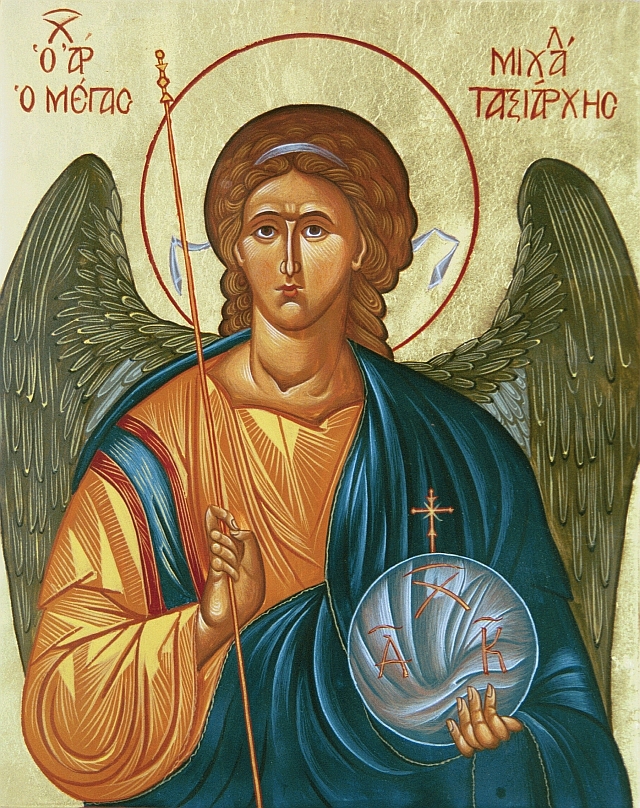 The angels of God were celebrated by men from earliest times but this celebration was often turned into the divinization of angels (IV Kings 23:5 [II Kgs KJV]). The heretics wove all sorts of fables concerning the angels. Some of them looked upon angels as gods; others, although they did not consider them gods, called them the creators of the whole visible world. The local Council of Laodicea (four or five years before the First Ecumenical Council) rejected the worship of angels as gods and established the proper veneration of angels in its Thirty-fifth Canon.
The angels of God were celebrated by men from earliest times but this celebration was often turned into the divinization of angels (IV Kings 23:5 [II Kgs KJV]). The heretics wove all sorts of fables concerning the angels. Some of them looked upon angels as gods; others, although they did not consider them gods, called them the creators of the whole visible world. The local Council of Laodicea (four or five years before the First Ecumenical Council) rejected the worship of angels as gods and established the proper veneration of angels in its Thirty-fifth Canon.
In the fourth century, during the time of Sylvester, Pope of Rome, and Alexander, Patriarch of Alexandria, the present Feast of Archangel Michael and all the other heavenly powers was instituted for celebration in the month of November. Why precisely in November? Because November is the ninth month after March, and March is considered to be the month in which the world was created. Also, as the ninth month after March, November was chosen for the nine orders of angels who were created first. St. Dionysius the Areopagite, a disciple of the Apostle Paul (who was taken up into the third heaven), described these nine orders of angels in his book, On the Celestial Hierarchies, as follows: six-winged Seraphim, many-eyed Cherubim, God-bearing Thrones, Dominions, Powers, Virtues, Principalities, Archangels, and Angels. The leader of all the angelic hosts is the Archangel Michael.
Feast of the Translation of the Relics of Saint George
16. November 2017 - 8:29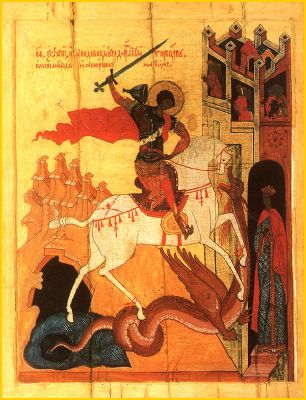 On this day we commemorate the translation of the relics of St. George, from Nicomedia, where he suffered at the time of Emperor Diocletian, to the city of Lydda in Palestine. The suffering of this wonderful saint is described on April 23. Anticipating his martyrdom, St. George begged his servant to take his relics to Palestine, where his mother had been born, and where he had distributed his large estate to the poor. The servant did so. During the reign of Emperor Constantine, pious Christians built a beautiful church to St. George in Lydda and, upon the consecration of that church, the relics of the saint were interred there. Innumerable miracles have occurred from these miracle-working relics of St. George, the great-martyr of Christ.
On this day we commemorate the translation of the relics of St. George, from Nicomedia, where he suffered at the time of Emperor Diocletian, to the city of Lydda in Palestine. The suffering of this wonderful saint is described on April 23. Anticipating his martyrdom, St. George begged his servant to take his relics to Palestine, where his mother had been born, and where he had distributed his large estate to the poor. The servant did so. During the reign of Emperor Constantine, pious Christians built a beautiful church to St. George in Lydda and, upon the consecration of that church, the relics of the saint were interred there. Innumerable miracles have occurred from these miracle-working relics of St. George, the great-martyr of Christ.
Archbishop of Canterbury intervenes to save Iraqi Christian from deportation
26. January 2017 - 16:15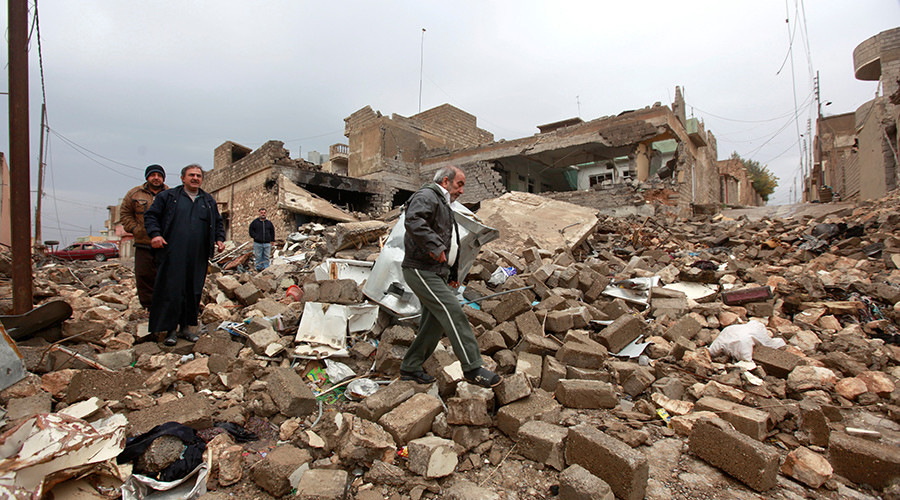 The archbishop of Canterbury, Justin Welby, has made a bid to keep an Iraqi Christian who fled Islamic State (IS, formerly ISIS/ISIL) from being deported back to his home country.
The archbishop of Canterbury, Justin Welby, has made a bid to keep an Iraqi Christian who fled Islamic State (IS, formerly ISIS/ISIL) from being deported back to his home country.
Welby has written a letter to the Home Office in support of the refugee ahead of a fresh appeal to overturn the rejection of his asylum claim.
Saint Stephen Milutin of Serbia
12. November 2016 - 12:26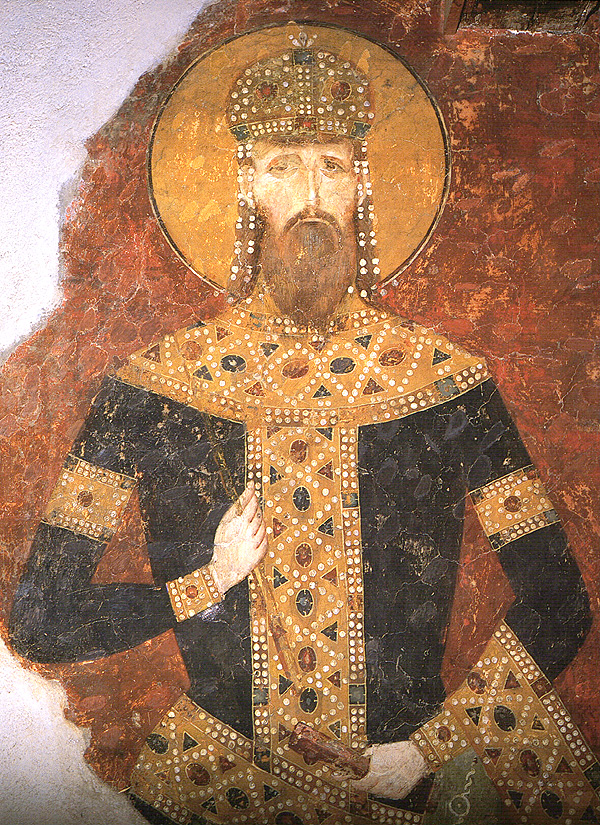 Saint Stephen was the younger son of King Stephen Urosh I, and grandson of First-Crowned King St Stephen (September 24). He ruled Serbia from 1275 to 1320. Stephen Milutin received the throne from his elder brother Dragutin, a true Christian, who after a short reign transferred power over to his brother, and he himself in loving solitude withdrew to Srem, where he secretly lived as an ascetic in a grave, which he dug with his own hands. During his righteous life, St Dragutin toiled much over converting the Bogomil heretics to the true Faith. His death occurred on March 2, 1316.
Saint Stephen was the younger son of King Stephen Urosh I, and grandson of First-Crowned King St Stephen (September 24). He ruled Serbia from 1275 to 1320. Stephen Milutin received the throne from his elder brother Dragutin, a true Christian, who after a short reign transferred power over to his brother, and he himself in loving solitude withdrew to Srem, where he secretly lived as an ascetic in a grave, which he dug with his own hands. During his righteous life, St Dragutin toiled much over converting the Bogomil heretics to the true Faith. His death occurred on March 2, 1316.
St Stephen Milutin, after he became king, bravely defended, by both word and by deed, the Orthodox Serbs and other Orthodox peoples from their enemies. St Stephen did not forget to thank the Lord for His beneficence. He built more than forty churches, and also many monasteries and hostels for travelers. The saint particularly concerned himself with the Athonite monasteries.
Martyr Anastasia the Roman
11. November 2016 - 14:38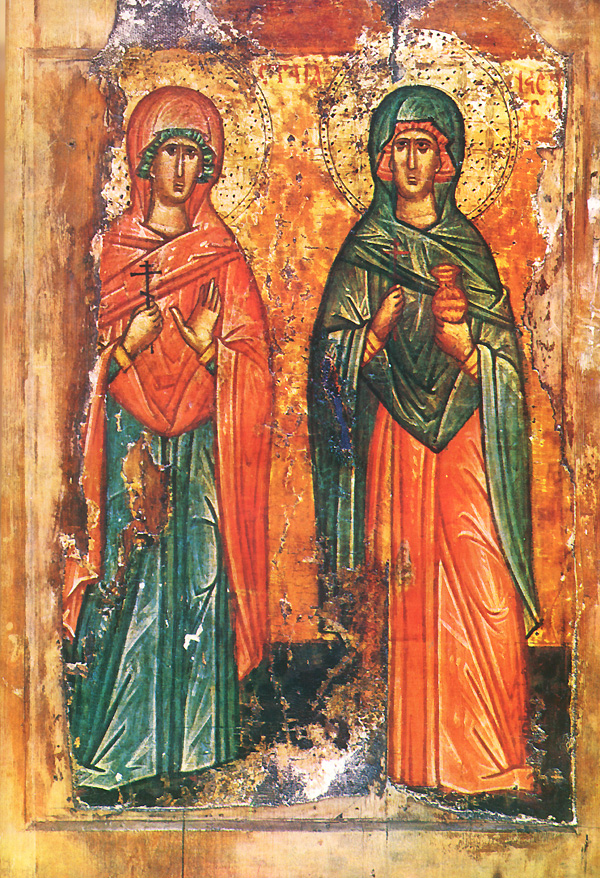 The Martyr Anastasia the Roman lost her parents in infancy, and was then taken to be reared by the abbess of a women’s monastery, named Sophia. She raised Anastasia in fervent faith, in the fear of God and obedience.
The Martyr Anastasia the Roman lost her parents in infancy, and was then taken to be reared by the abbess of a women’s monastery, named Sophia. She raised Anastasia in fervent faith, in the fear of God and obedience.
The persecution against Christians by the emperor Decius (249-251) began at that time. The city administrator, Probus, on the orders of the emperor commanded that Anastasia be brought to him. Blessed by her abbess to suffer for Christ, the young martyr Anastasia humbly came out to meet the armed soldiers. Seeing her youth and beauty, Probus first attempted flattery to make her deny Christ.
“Why waste your youth, deprived of pleasure? What is there to gain by enduring tortures and death for the Crucified? Worship our gods, marry a handsome husband, and live in glory and honor.”
Apostle James, the Brother of the Lord
5. November 2016 - 1:51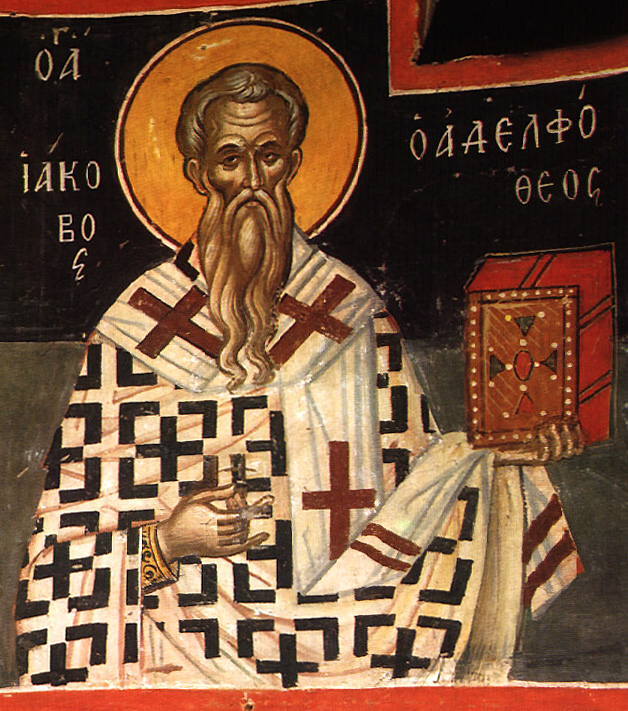 Holy Apostle James, the Brother of God (Adelphotheos) was the son of Righteous Joseph the Betrothed of the Most Holy Theotokos (December 26). From his early years James was a Nazarene, a man especially dedicated to God. The Nazarenes vowed to preserve their virginity, to abstain from wine, to refrain from eating meat, and not to cut their hair. The vow of the Nazarenes symbolized a life of holiness and purity, commanded formerly by the Lord for all Israel. When the Savior began to teach the nation about the Kingdom of God, St James believed in Christ and became His apostle. He was chosen as the first Bishop of Jerusalem.
Holy Apostle James, the Brother of God (Adelphotheos) was the son of Righteous Joseph the Betrothed of the Most Holy Theotokos (December 26). From his early years James was a Nazarene, a man especially dedicated to God. The Nazarenes vowed to preserve their virginity, to abstain from wine, to refrain from eating meat, and not to cut their hair. The vow of the Nazarenes symbolized a life of holiness and purity, commanded formerly by the Lord for all Israel. When the Savior began to teach the nation about the Kingdom of God, St James believed in Christ and became His apostle. He was chosen as the first Bishop of Jerusalem.

